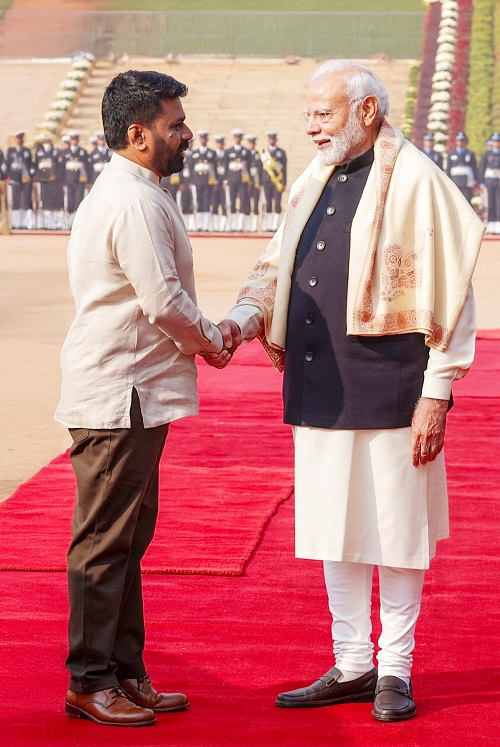
By Gamini Abeywardane
There is much controversy and debate across the political spectrum over the seven bilateral agreements Sri Lanka recently concluded with India.
This was the result of Indian Prime Minister Narendra Modi’s recent visit to Colombo—a culmination of strong cooperation between the two countries, especially under Sri Lanka’s newly elected leadership.
The contention revolves around the landmark defence cooperation pact and six other agreements focused on vital areas such as energy, digital infrastructure, and trade cooperation.
There has been significant criticism in the political arena, particularly from those who equate the entire development with selling off Sri Lanka’s sovereignty to India. But this may be party politics at its best, rather than a realistic assessment of the situation.
With China’s growing influence in the region—and its existing presence in Sri Lanka through the port and port city projects—balancing these dynamics with India’s security concerns has been a challenging task for Sri Lankan leaders.
India’s involvement with the ethnic issue in northern Sri Lanka, the 1987 Peace Accord, and related developments are fine examples of the complex nature of our relationship with India. Then there is also the minor but perennial issue of illegal fishing by Indian fishermen in Sri Lankan territorial waters, which must be resolved at some point.
However, even in the context of regional power play, a factor that cannot be ignored is our historical, cultural, religious, and geographical proximity to India—one that dictates the need for a special relationship.
Alongside China, India is also fast becoming a global power. Sri Lanka has reached a crucial juncture where it must focus on future economic growth, and in that context, the need for closer trade and economic ties with the vast Indian market cannot be underestimated.
The signing of these MoUs took place against this peculiar backdrop, and our ability to leverage the new opportunities for economic advancement—while also working closely with China and other major economic powers—will depend on the diplomatic skills of present and future Sri Lankan leaders.
Historically, our ties with India have often been politically sensitive. However, in the current context, Sri Lanka has little choice but to work closely with India—however politically uneasy it may be, given the local political climate.
Subscribe to our newsletter to get notification about new updates, information, etc..